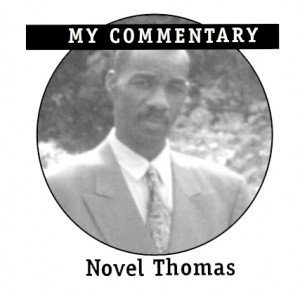
And there we have it. The candidates came, they promised. We listened and most of us voted. Some were elected, others rejected.
For those from the victorious party, it’s time to get down to the business of governing and the nation’s business. But don’t forget about those interests and issues of your constituents who put you in office. Especially those of the various marginalized communities who have been historically marginalized and their votes taken for granted. That practice has become untenable; we want you to listen to our stories, help respond to our needs at the national, but especially at the community level. They may be viewed as insignificant at national level, but are important at the local level.
As is the norm, the politicians went across the land selling “bagsful” of electoral promises. The people voted… essentially bought the political come-on (bags of electoral goods), now it’s time for them to deliver what we paid for in advance with our votes. Now they must deliver; but first, we’ll cut them, the newly elected MPs, some slack and allow them to settle into their new gig. It’s called the honeymoon period.
These are different times, trying times (of political cynicism); we can no longer allow politicians (and by extension their gatekeepers to come into our communities every four or five years, plastering their images and making election sales pitches then simply walk away and settle into their six-figure salaries [without ever seeing or hearing from them again].
No we can’t, and shouldn’t.
This election season I took a sort of business approach: political candidates are selling a product, themselves, but beyond/beneath the sales pitch there’s something more there they can do for me.
I voted, yes. But a few days (the last weekend of the campaign), I checked the pamphlets of the candidates that were slipped into my mail slot by Party volunteers, selling their people who were vying for my vote. At that point I was still thinking and determining where I should spend my vote. And given how the prognostications were playing out I was leaning to one of the political parties I usually give my vote to…
I usually vote one way or the other. So, as the campaign approached the finish line, I realized that the party I voted for last federal election was plummeting in the polls, after soaring most of the extended campaign. I concluded that the candidate I voted for last time would be going down.
So early Thursday morning I decided to call a candidate, a neophyte, from my other political-electoral option. (Depending how the political winds blow I vote either of two parties.)
I called; the gatekeeper answered. I asked for the candidate; she asked who I am, etc. I gave her my name and reason for calling. She was polite, and went to get the candidate. I identified myself as someone in his riding. And we talked: I gave her my reasons for calling, especially why I should vote for him, despite an ubiquitous, unflattering campaign poster in the riding. The image had me mischaracterizing the gentleman. It’s called prejudice, not race, political.
He told me about himself, his career, family background, etc., and explained why he was taking a dive into the political swimming pool. I told him I’m one of many Black residents (families) living in the riding and that I’m tired of politicians ringing my doorbell and attempting to sell me promises…
We talked for about 10 to 15 minutes. And I asked him why I haven’t seen him in my neighborhood; after all he had 78 days. He explained he couldn’t visit every residence in the fairly large riding. True. But he had over two months of pleasant weather to ring every bell. And I told him I don’t want my vote to be taken for granted. Nevertheless, I was moving to his side. He was pleasant, but not the reason why I thought I should buy his political goods, though.
Before we bid each other farewell, I wished him good luck, and he invited me to a rally at his campaign headquarters that evening.
When I arrived at the venue that evening, a small crowd had already gathered, people pumping flesh, taking pictures, etc. I, personally, am not into all that photo-op business, so I simply stayed on the periphery and observed. The place was crowded, including a fair number of Black folk, reinforcing what I told the candidate that morning about black votes. I was feeling good about that candidate; he was going to be smiling (election night).
We then listened to warm-up speeches by federal and provincial party officials and organizers. Then a former prime minister took to the stage (to loud applause) to further warm-up the crowd. Then the neophyte took the stage with his political spiel, some of which I had heard that day.
When all was said and done I made my way through the crowd, introduced myself (by name) as the person whom he had spoken with that morning. I shook his hand, wished him good luck with a handshake.
I then grabbed a Pepsi at the snack table and went home.
Monday morning I went and voted for him. And when I need some help in terms of various issues I could be helped with by my MP I will be calling on him. He probably forgot me by now; but when I find out where his office is, I’ll be in touch.
My vote is like money. That’s why my political mantra is: My vote has value. It’s what I will remind my political representatives—at every level—whenever I have a reason to meet with them.















